When you’re in the market for a new car, you have two main options for paying for it: cash or financing. Both have pros and cons, so it’s important to weigh your options carefully before deciding. We’ll break down the key differences between paying cash for a car and financing one, so you can make the best decision for your personal finances.
Paying Cash for a Car
Buying a car outright with cash has some great benefits. Foremost, paying cash means you won’t have to worry about monthly car payments. In addition, this can free up some extra money each month to put toward other financial goals, like saving for retirement or building an emergency fund.
As well, if you pay cash for a car, you won’t have to worry about interest charges eating into your budget. So, in the long run, this method can save you money and, if you’re wise, even make you money by investing the extra cash you have each month.
However, there are also some downsides to paying cash for a car. To begin with, if you barely have enough to cover the total cost of the vehicle, you could end up overspending and putting yourself in a tight financial spot.
For example, if you pay cash for a car and something unexpected comes up (like an unexpected medical bill), you might not have the reserves on hand to cover it.
Not to mention, dealerships who are keen on selling financing packages might not be happy to hear you want to pay cash. To you, it sounds like a good deal for them and an easy sale, but they make a lot of money with those financing packages. So, don’t expect to use paying cash as a bargaining chip to get a lower price — it might not work.
Ultimately, you should only pay cash for a car if you have the full amount saved and you’re confident you won’t need to tap into those savings for other purposes. If this isn’t the case, auto loan financing might be a better option for you.
Financing a Car
When you finance a car, you’re taking out a loan to cover the cost of the vehicle. You’ll make monthly payments on this loan — a combination of the principal, interest, and any other fees charged by the lender — until it’s paid off.
For many people, financing is the best way to buy a car because it allows them to spread the cost of the vehicle over time. This can make it more affordable in the short-term and give you some flexibility if you need to tap into your savings for other purposes.

One of the most significant benefits of financing a car is that it allows you to purchase a more expensive vehicle than you could if you were paying cash. With average new car prices topping $45,000 in 2021, according to Forbes, financing is often the only way to afford a new vehicle.
Another benefit of financing a car is that it can be an excellent way to build your credit. As long as you make your monthly payments on time, you’ll be building a positive credit history that can help you down the road when you’re looking to take out a mortgage or another type of loan.
Of course, there are also some drawbacks to financing a car. To begin with, you’ll have to pay interest on your loan, which will increase the total cost of the car over time. If you get locked into a bad loan, this could cost you thousands of dollars in the long run and require you to refinance your car loan down the road.
Of course, this can be avoided by shopping around for the best interest rate and being mindful of the terms of your loan. Still, it’s something to be aware of nonetheless.
Additionally, suppose you have trouble making your monthly payments. In that case, you could risk damaging your credit score or even losing your car to repossession. This will make it difficult or costly to get another car loan in the future or secure other types of financing.
That’s why it’s vital to secure an interest rate and loan term that works for your budget and make sure you have a plan for making your payments on time each month.
Lastly, if you finance a car and later want to sell it before the loan is paid off, you might end up owing more money than the car is worth (this is known as being “upside down” on your loan). In these situations, you’ll have to cover the difference between what you owe and what the car is sold for to pay off your loan in full.
Make the Decision That’s Right for You
There’s no right or wrong answer when it comes to deciding whether to buy a car with cash or finance it. It all depends on your personal financial situation and what makes the most sense for your budget and comfort level with large financial expenditures.

If you have enough money to pay for a car outright, paying cash might be the best option for you as it can help free up extra money each month. However, if you don’t have enough saved up or want to purchase a more expensive vehicle than you could afford with cash, financing might be the better option.
Consider all your options and use an auto loan calculator to estimate your monthly payments before deciding. This will help ensure you choose the car-buying option that makes the most sense for your personal finances.

